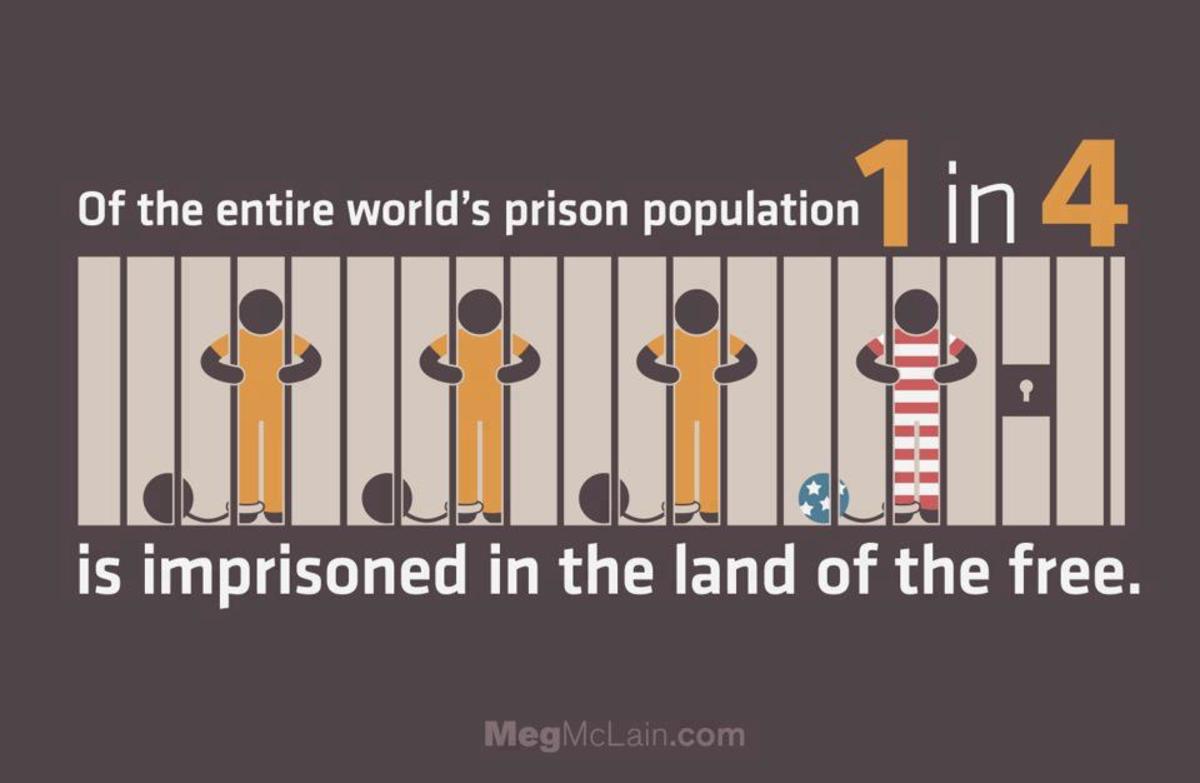Can Felons Vote? Understanding Voting Disenfranchisement

Can felons vote? The answer is largely maybe and, in some places, definitely not. It’s not an easy subject in America where more than 5.3 million are convicted felons. Of this number, 4 million are no longer in prison and are working and paying taxes, yet they remain part of the voting disenfranchised.
Is this fair? It is a very controversial subject, much like capital punishment or the voting disenfranchisement of D.C. citizens.
So why is the right to vote not restored to felons?
The principle behind it, called civil death, dates back to ancient times. Persons that committed grievous crimes or crimes against the state so acted against their own civil rights, resulting in the loss of those rights. Often a civil death meant the actual death of the accused.
It is related to the Middle Ages practice of declaring a person an outlaw, or one who is outside the law (deriving from Roman law, homo sacer). This was an extreme judgment against one because legal protection no longer existed for a person, effectually becoming a death sentence that could be executed by anyone.
Think On It:
Is felon disenfranchisement a form of discrimination and social recrimination?
Statute
| States
|
|---|---|
Vote unrestricted to felons
| Maine, Vermont
|
May vote after incarceration term
| D.C., HI, IL, IN, MA, MI MT, NH, ND, OH, OR PA, RI, UT
|
May vote after incarceration term and parole
| CA, CO, CT, NY
|
May vote after incarceration term, parole, and probation
| AK, AR, GA, ID, KS, LA, MD, MN, MO, NJ NM NC, OK, SC, SD TX, WA, WV, WI
|
May lose vote permanently
| AL, AZ, DE, FL, IA, KY MS, NE, NV, TN, VA WY
|
Voting Disenfranchisement State-by-State
Voter franchise rights are left to the states to determine and regulate. Thus, details and stipulations abound, but it is not hard to categorize these laws.
Currently, there are only two states where felon voting rights are unrestricted—Vermont and Maine—and felons may vote in prison by absentee ballot. This is not uncommon in some countries, like in Canada, France, Israel, Japan, and a few Scandinavian countries.
Three other categories require felons to have completed some combination of their incarceration term, parole, and probationary period. Thirteen states (and D.C.) restore voting rights after the term of incarceration; four states after incarceration time and parole; and 19 states after all three (including probationary period.)
In twelve states, however, felons may lose their voting rights permanently. This depends on a few factors, like the state, crime committed, elapsed time since the sentence was completed, and other things. Some of these states—Virginia, Florida, Nevada to list a few—require executive pardon by the governor or appeal to the court in which one was convicted.

Is felon voting disenfranchisement fair?
Prisoner Rehabilitation or Punishment?
Some deem voting disenfranchisement unlawful and tramping upon a person’s rights under the 8th Amendment, which forbids excessive bails, fines, and cruel and unusual punishments. It also questions the purpose of incarnation itself.
A longstanding issue concerns whether prison exists to rehabilitate offenders or to merely punish them. In fact, until the mid-1970s and the advent of lockdown rehabilitation was the focus in the American prison system, largely stemming from the Federal Prison Rehabilitation Act of 1965.
This act provided work release, furloughs, and treatment centers for minimum-security prisoners. It was designed to restore first-offenders to society by teaching them occupational skills and resolving psychological issues and so halt a slide into further crime and recidivism.
Punishment, however, is the de facto purpose of incarceration in America today. Getting tough on crime now means to corral and lock up prisoners, many of whom have mental illnesses, into a new social order that only reinforces the social weaknesses that put them there, encourages violence, and guarantees social ineptitude and crime when they leave. Such may actually be more a punishment to the non-offending society that has to foot the bill and deal with increased fear and delinquency.
The question is which of these two models—prison as rehabilitation or punishment—does felon voting disenfranchisement seem to be the most likely result of ideologically?
For persons who have paid their “debt to society” and put that period of time behind them—whether there’s rehabilitation or not—do they deserve to regain their civil privileges in full? Some of these people were teenagers and very young adults when they became felons and are now living new lives.
Voting disenfranchisement is yet another deep discussion for the American public and leadership.





